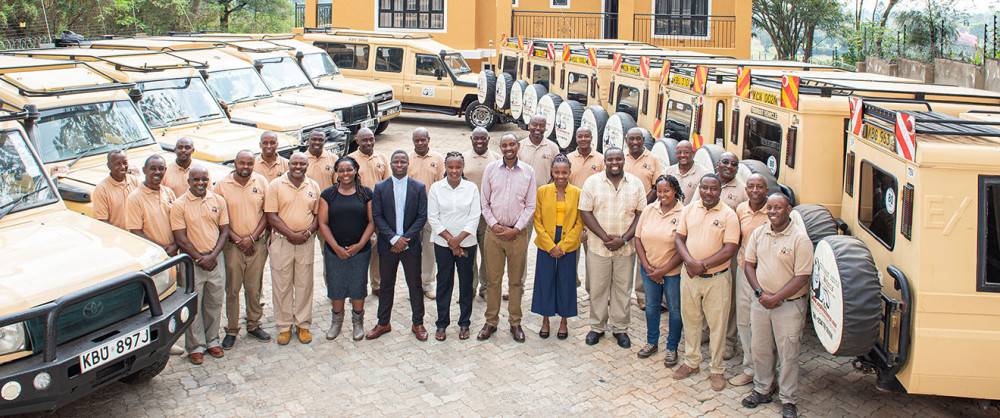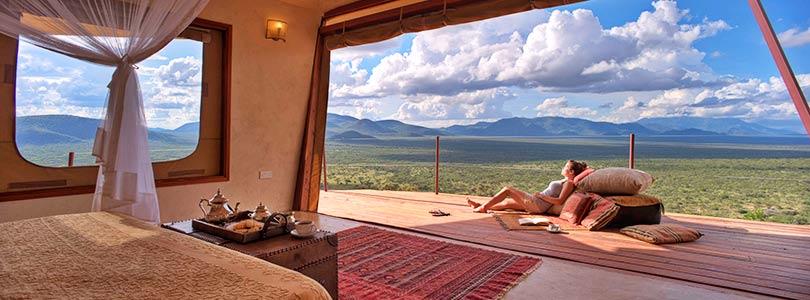Top Info To Picking Devil666 Websites
Top Info To Picking Devil666 Websites
Blog Article
What Precautions For Health Should Be Taken Into Consideration Prior To My Visit To Mombasa Kenya?
It is essential to ensure your health is protected when you visit Mombasa in Kenya. This will ensure that you are enjoying your trip and remain safe. Here are some of the main health concerns:
1. Vaccinations
Routine Vaccinations: Ensure that you are up-to-date on routine vaccines such as measles-mumps-rubella (MMR), diphtheria-tetanus-pertussis, varicella (chickenpox), polio, and your yearly flu shot.
Hepatitis A is advised for all travelers because of the possibility that water and food could be contamination.
Hepatitis B : Travelers who are exposed to blood or bodily fluids through sexual contact, medical procedures, or drug usage should be screened.
The vaccination against typhoid is recommended for anyone traveling, but especially for those who are visiting smaller or rural regions, staying with family or dining in uninformed places.
Yellow Fever A certificate of vaccination may be required by travelers who arrive from countries that are susceptible to yellow Fever transmission. Find out the most recent requirements.
Rabies: Those who are at risk of bites by animals while doing outdoor activities like camping, hiking or caving need to be aware of this.
2. Malaria Prevention
Mombasa's malaria is prevalent. Consult your healthcare provider for the best antimalarial medication for you.
Use DEET insect repellent and wear long sleeves and long trousers. This is especially important in the evening. If you do not have an air-conditioned and well-screened hotel room, you can sleep with a net.
3. Food and Water Safety
Drinking tap water is not recommended as are Ice cubes. Avoid drinking tap water, ice or drinks that aren't sealed.
Only eat foods that are cooked well. Avoid eating meat that is uncooked, raw or seafood. Also, avoid vegetables and fruits that are not washed. Avoid street food, and choose reputable restaurants.
4. Diarrhoea in the course
Hand Sanitizer, or washing your hands with soap and hot water is a good method to ensure you are maintaining a healthy hand hygiene. Avoid drinking or eating foods from sources that are not dependable.
Bring medications with you such as Imodium and oral rehydration sodiums. If the case is severe Consult your physician about antibiotics.
5. Sun Protection
Use a sunscreen with at least a 30 SPF. Reapply frequently, particularly after swimming and sweating.
Wear sunglasses with hats and hats. Wear long sleeves, light clothes to limit exposure to the sun.
6. Heat and Hydration
Stay Hydrated. Drink plenty of fluids, especially water, to avoid dehydration. Avoid drinking large amounts of caffeine or alcohol, since they can lead to dehydration.
Do not overexert yourself Stop for breaks, especially during the most hot times of the day. Find shade and cool places to avoid heat exhaustion and heat stroke.
7. Water Sports: Safety and Security
Swim in designated areas: Listen to local advice about swimming conditions, including potential hazards such as strong currents.
Marine Life Awareness: Beware of harmful marine life like jellyfishes and sea urchins. Wear water shoes when walking in shallow waters.
8. Medical Care and Insurance
Travel Insurance: Insurance for travel should be able to cover medical emergencies and evacuation and provide comprehensive coverage.
Local Medical Facilities: Familiarize yourself with the exact location of medical facilities that are reputable located in Mombasa. Hotels with major chains usually include information on nearby hospitals and doctors.
Medication: Bring an adequate amount of the prescription medication you are taking, as well as copies of your prescriptions.
9. Emergency Contacts
Embassy Information: Have the contact details for the consulate or embassy of your country in Kenya.
Local Emergency Numbers. Find the emergency number in your area for police (999), firefighters (999) and ambulances (999).
By taking these health precautions You can reduce the risk and enjoy your vacation in Mombasa. View the top rated Diani Beach taxi for more examples including tours and safaris, safari a nairobi, tour firms in kenya, kenya tours and travel, kenya safaris, tours safari africa, travel tours in kenya, kenya safari beach, mombasa packages, mombasa tours and more.
What Weather Considerations Should I Be Aware Of Prior To A Vacation In Mombasa Kenya?
It is important to understand the weather patterns of Mombasa prior to packing and make the most of your time off. Here are some essential factors to consider when planning your trip.
1. Climate Overview
Tropical Climate: Mombasa has a tropical climate that is hot and humidity year-round. You can expect warm weather, with temperatures that range from 24degC (75%F) to 32 degrees Celsius (90%F).
2. Seasons
This is a period of high temperatures, and a high humidity. It's also the peak tourist season, especially during December and January.
Long rains from April to June : Heavy rainfall and storms are common throughout the time of heavy rain. The roads are often rough and muddy, making it difficult to navigate. The low season is upon us.
Cooler Season (June to October) The coolest season is the most relaxing time to travel, due to low humidity levels and temperatures. It is a pleasant weather, perfect for outdoor pursuits.
Short Rains (October to November) The short, less intense rain showers occur during this time. The rains are usually brief, and then later, sunshine follows.
3. Packing Tips
Lightweight Clothing: Bring lightweight, breathable clothing such as linen and cotton in order to stay cool in the humid weather.
Rain gear: If you are traveling during the rainy seasons, bring an waterproof jacket along with an umbrella, as well as waterproof shoes.
Sun Protection: A high-SPF sunscreen broad-brimmed cap, sunglasses, light clothing, and covering the skin with light clothing can help protect you from intense sunrays.
Swimwear: Bring your swimwear to the beach, or the hotel pool.
4. Weather Specific Activities
Beach Time: The most ideal time to go to the beach is during the cooler season (June to October) when the weather is pleasant and the sea conditions are favorable.
A calm and clear ocean is perfect for snorkeling, diving and water sports, from November through March.
Wildlife viewing - The colder months (June to October) are perfect for safaris and trips into the wild, because it's more comfortable.
5. Health-related Considerations
Stay hydrated. The humid and hot climate will require you to stay hydrated. Drink plenty of water especially when you're outside.
In the event of heat-related illness, be aware of the risk of heatstroke and exhaustion. Wear loose fitting clothing and avoid vigorous physical activity during peak temperatures.
6. Adjustments for Travel
Traveling during the rainy season: Prepare yourself for delays in travel during long rains. There could be delays due to roads that are not passable and restricted outdoor activities.
The rainy season can lead to delays to flights. Be aware of your travel plans and make plans for contingencies.
7. Environmental Concerns
Natural Hazards - Be aware that heavy rain can trigger flooding. Stay up-to-date with the weather and follow the local safety guidelines.
Be aware of tides when making plans for beach activities. They can be drastically different. Consult tide schedules to ensure safe beachcombing and swimming.
If you know the importance of the weather, you'll be in a position to plan your trip, pack correctly and ensure that your stay in Mombasa is safe. See the best park funzi for website examples including kenya safari and beach, mombasa tour packages, mombasa tour companies, kenya africa travel, kenya tours, mombasa tour packages, kenya beach mombasa, tour company in kenya, africa in kenya, kenya tourism and more.
What Financial Planning Considerations Do I Have To Be Aware Of While I Am On Holiday In Mombasa, Kenya?
Planning your finances is crucial when you're on holiday in Mombasa. Here are a few important financial considerations you should keep in your head.
1. Budgeting
Accommodation: Make reservations for your accommodations early enough to reserve your accommodation. Prices can differ greatly based on the type of accommodation and its location.
Include costs for transportation such as taxis, flights and matatus (local transportation) and car rental.
Food and dining Food and Dining: Budget for meals, including eating out and snacks. Costs vary from budget-friendly local eateries to luxury restaurant chains.
Plan activities and tours. This includes admission costs for tourist attractions and guided tours, as and activities such as safaris, cultural tours, water sports and more.
2. Exchange rates and currency
Kenyan Shilling (KES): This is the currency used in Kenya. Be familiar with the exchange rate.
Currency Exchange Money with reputable banks and currency bureaus. You could also exchange your currency through your hotel. Don't exchange cash on streets.
ATMs: ATMs are easily accessible in Mombasa. Ensure your card is compatible with international withdrawals, and be aware of any fees.
3. Payment Methods
Cash is useful for smaller transactions, tipping and places where cards are not accepted.
The majority of credit cards can be used in hotels, restaurants and even larger retail stores. Inform your bank of your travel plans in order to stop your card from being blocked.
M-Pesa Mobile payments is widely utilized by Kenyans. It can be used for transactions, in the event that you're planning to purchase a local SIM.
4. Making money is easy to do with these tips
Take advantage of the shoulder or low-seasons (April to June and October through December) to save on accommodation and flights.
Book in Advance: Secure better deals on accommodations, flights, and tours by booking early enough in advance.
Local restaurants. You can enjoy the authentic experience of dining at local eateries and food stalls.
5. Tipping
Tipping in Kenya is a standard procedure in Kenya. In restaurants 10% is the norm to tip if services are not included. Make sure you tip the staff of your hotel along with drivers and guides.
Tips: Small amounts in local currency are appreciated. Tipping porters should be between KES 50 to 100 per bag. Tipp housekeepers at least 100 kES per day.
6. Emergency Funds
Reserve funds: Have an emergency cash reserve on hand and make sure that you have access to funds through a credit or debit card.
Travel Insurance: Buy complete travel insurance that includes medical emergencies as well as trip cancellations. It also protects you against theft and loss.
7. Security
Security of valuables: Use hotel safes to protect passports, cash spare and other valuables. Be careful when using ATMs, particularly during the night.
Avoid carrying large amounts of cash Do you have huge amounts of cash? Split your cards and money into two separate locations: inside your wallet and another secure place.
8. Local Transactions
Local market bargaining is quite popular. It is crucial to conduct the process with dignity, respect and with the intention of achieving the best bargain.
Receipts and Records: Keep receipts of major purchases and transactions. This can be useful for tracking your budget, and also in the event that there is disputes.
9. Understanding Fees
Your bank could charge fees for withdrawals from abroad. Some ATMs could charge a fee if you withdraw funds from a foreign bank account.
Currency Conversion Costs. Pay attention to any conversion fees charged by your bank when you use a credit card or debit card overseas.
You will be able to enjoy a stress-free holiday in Mombasa by directing your finances efficiently. Check out the recommended kenya mombasa train for more advice including mombasa safari packages, safari company kenya, african safari excursions, trips to kenya, safari trips in africa, tour firms in kenya, safari trips in kenya, safar kenya, tour mombasa, tours safari africa and more.